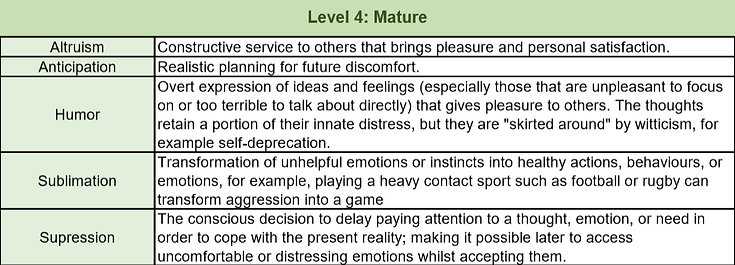
STRESS: noun \ ˈstres \
c: a physical, chemical, or emotional factor that causes bodily or mental tension and may be a factor in disease causation
d: a state resulting from a stress especially : one of bodily or mental tension resulting from factors that tend to alter an existent equilibrium
Your nervous system isn’t very good at distinguishing between emotional and physical threats. If you’re super stressed over an argument with a friend, a work deadline, or a mountain of bills, your body can react just as strongly as if you’re facing a true life-or-death situation. And the more your emergency stress system is activated, the easier it becomes to trigger and the harder it becomes to shut off. Health problems caused or exacerbated by stress include: Depression and anxiety, Pain of any kind, Sleep problems, Autoimmune diseases, Digestive problems, Skin conditions, such as eczema, Heart disease, Weight problems, Reproductive issues, and Thinking and memory problems

Understand your stress
Allow me to preface: Depending on the context, Coping Mechanisms can be defined as the semi-subconscious psychological defenses we use to protect ourselves or adapt to stressors, or as the fully-conscious actions we take to improve our conditions.
Ex. Projection vs A Better Sleep Schedule
For the majority of this project, we will refer to Coping Mechanisms as defenses and the other as actions or healthy habits.
recogize coping mechanisms

Step one to minimizing stressors is to recognize when you're coping. Do you know which behaviors are helping your situation? Do you cope in ways that harm you or others around you?
Sigmund Freud studied the mind's defenses extensively. His original list of defense mechanisms has been continued into modernity, and we encourage you to explore the work of his predecessors further. We shall focus on those proposed by Freud and his daughter, Anna.
Later Psychiatrist George Eman Vaillant introduced a four-level classification of defence mechanisms:
-
Level I – pathological defences (psychotic denial, delusional projection)
-
Level II – immature defences (fantasy, projection, passive aggression, acting out)
-
Level III – neurotic defences (intellectualization, reaction formation, dissociation, displacement, repression)
-
Level IV – mature defences (humour, sublimation, suppression, altruism, anticipation)
Sigmund and Anna Freud'S Ego defenses
These are five defenses considered the Main Defences after Anna Freud expanded on her father's work:
Repression: when a feeling is hidden and forced from the consciousness to the unconscious because it is seen as socially unacceptable.
Regression: falling back into an early state of mental/physical development seen as "less demanding and safer".
Projection: possessing a feeling that is deigned as socially unacceptable and instead of facing it, that feeling or "unconscious urge" is seen in the actions of other people.
Reaction Formation: acting the opposite way that the unconscious instructs a person to behave, "often exaggerated and obsessive". For example, if a wife is infatuated with a man who is not her husband, reaction formation may cause her to – rather than cheat – become obsessed with showing her husband signs of love and affection.
Sublimation: seen as the most acceptable of the mechanisms, an expression of anxiety in socially acceptable ways.
Vaillant's classification:
Level I Mechanisms are known to be severely pathological – they allow a person’s perception to effectively rearrange external experiences to eliminate the need to cope with reality. Pathological users of these mechanisms frequently appear irrational or insane to others. These are the "psychotic" defenses, common in overt psychosis. However, they are normally found in dreams and throughout childhood as well.
Level II Mechanisms are present in adults. These mechanisms lessen distress and anxiety produced by threatening people or by an uncomfortable reality. Excessive use of such defenses is seen as socially undesirable, in that they are immature, difficult to deal with and seriously out of touch with reality. These are the so-called "immature" defenses and overuse almost always leads to serious problems in a person's ability to cope effectively. These defenses are often seen in major depression and personality disorders
Level III Mechanisms are considered neurotic, but fairly common in adults. Such defenses have short-term advantages in coping, but can often cause long-term problems in relationships, work and in enjoying life when used as one's primary style of coping with the world.
Level IIII Mechanisms are commonly found among emotionally healthy adults and are considered mature, even though many have their origins in an immature stage of development. They have been adapted through the years in order to optimize success in human society and relationships. The use of these defenses enhances pleasure and feelings of control. These defenses help to integrate conflicting emotions and thoughts, whilst still remaining effective.




Healthy actions:

-
Relaxation -> Meditation, Sitting in Nature, Listening to Music, etc. Step back and clear you head. Soemtimes we can be too involved in a situation to make a good decision. Understand the importance of distance.
-
Humor -> Making light of a situation may help one cope with it and help it seem more manageable. Taking something too seriously can give it undue importance in your life. Consider what you should be able to laugh at.
-
Physical Activity -> Releases endorphins to force yourself to feel better. Doing chores while you're in a rut might make you feel productive and a clean house makes you feel better anyway. Running, Yoga, Dance, Swimming, etc.
-
Support -> Having comfort and reassurance from close ones can help with stress management. Valiation is important. They might have advice, especially if they get stressed too.